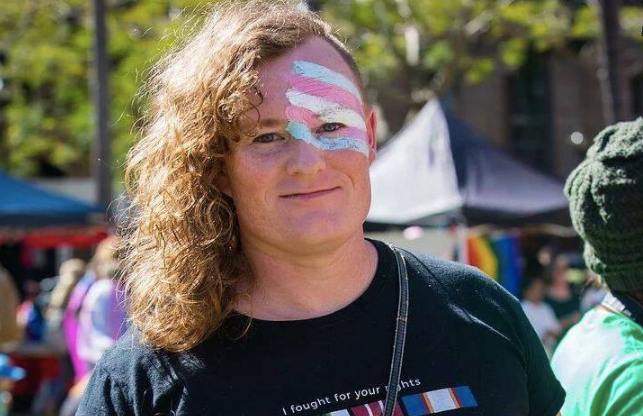Newsreader who ‘liked’ vile transphobic Facebook comments ordered to pay trans woman $10,000 in compensation

Bridget Clinch, Australia’s first transgender soldier (Facebook)
A newsreader has been ordered to pay $10,000 in compensation to a trans woman for liking Facebook comments that wrongly branded her “a male bully”.
The dispute began when Canberra radio broadcaster Beth Rep misgendered Bridget Clinch, Australia’s first transgender soldier, in a string of Facebook posts in March 2018. Clinch complained to the Australian Capital Territory (ACT) Human Rights Commission, and mediation led to Rep writing an apology and paying Clinch AU$ 700.
However, the ACT said Rep then “added fuel to [the] conflict” by liking many of the offensive comments posted under the apology, including “Bridget Clinch is a male bully”, “I hate Bridget and I don’t even know who he is” and #istandwithbeth.
Rep argued that she didn’t write the comments and had ‘liked’ them to highlight their importance rather than show agreement, but the ACT Civil and Administrative Tribunal disagreed.
“The respondent could have deleted the comments made against the apology. They were rude, offensive and unacceptable,” said senior tribunal member Bryan Meagher, according to ABC. “Once she was aware of the comments and did not remove them, she is responsible for them.”
By leaving them on the post she had continued to incite hate, the ACT said, actively stirring the debate and encouraging more people to leave vilifying and victimising comments towards the trans woman.
“Even if the respondent was not minded to deactivate comments, there was no need to react to them,” Meagher said. “It was simply not necessary. To do so unnecessarily added fuel to a conflict that the apology was supposed to end.”
Rep was ordered to pay $10,000 to Clinch in compensation, to delete “all posts, statements, information, suggestions or implications” on the matter and to refrain from sharing similar posts in future.
It will likely be a tough blow to Rep, who described herself to the tribunal as a “radical feminist” who believes in resisting what she called “aggressive trans activism”.

